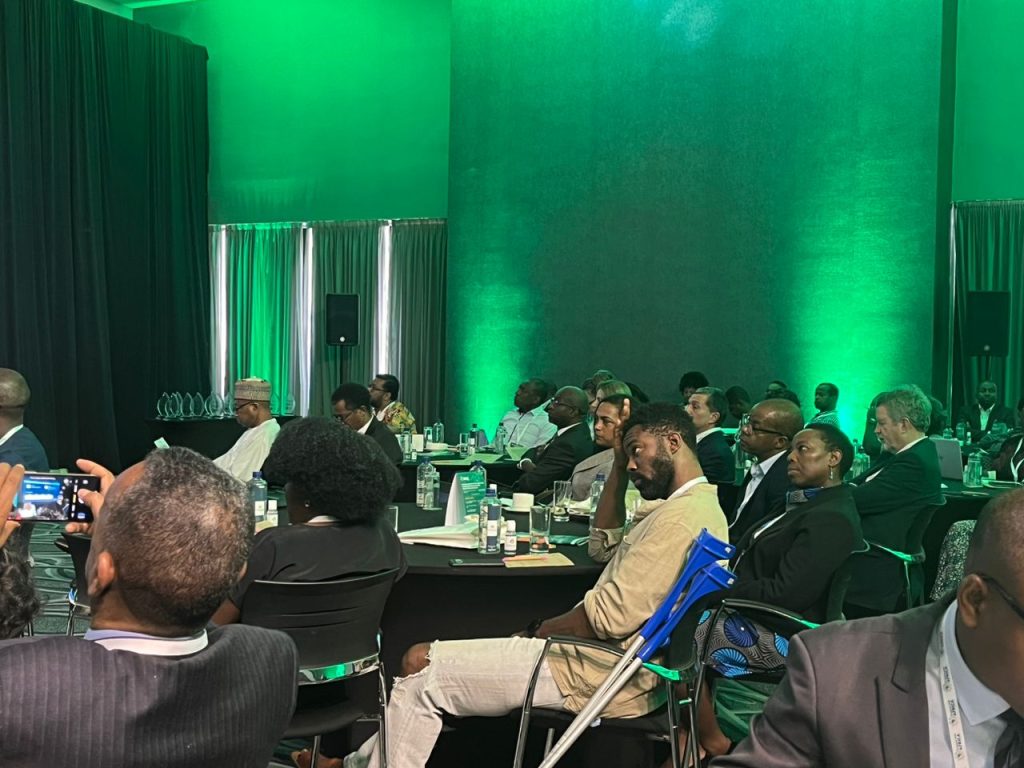Albert Oppong-Ansah
Nairobi (Kenya), March, 14, GNA, – The West African Center for Cell Biology of Infectious Pathogens ( WACCBIP ) says it is poised towards conducting further research to understand and provide vaccines to infectious and non-communicable diseases, including COVID-19 virus, hepatitis, cervical and breast cancers.
Parts of its attention in the next five years is to train scientists to conduct research to understand issues such as the genetic factors that make African women susceptible to breast cancer as well as why COVID-19 is not severe in Africa .
With a unique approach of researching from the fundamental level of conditions, WACCBIP Center is looking at coming up with new and better diagnostics of diseases such as hepatitis B.
Professor Gordon A. Awandare, the Director of WACCBIP, told the Ghana News Agency at the launch of phase two of Developing Excellence in Leadership, Training and Science (DELTAS) Africa, a funding mechanism for scientists in Kenya, Nairobi. DELTAS Africa , being implemented by the Science for Africa Foundation (SFA Foundation).
The Foundation is seeking to produce researchers to drive locally relevant and high-quality health research impacting on Science, policy and practice in Africa.
A total of 14 consortia in 75 institutions across the globe, including Ghana, Kenya, Tunisia, South Africa, Mali, Senegal, Ivory Coast , and Tanzania would have access to a 70-million-dollar grant to conduct research on health, climate change and agriculture.
Professor Awandare said through the DELTAS Africa II, grant WACCBIP would train students to obtain doctorate, post-doctorate, masters degrees and technology fellows in the next five years.
He said as a result of the effective capacity building offered by 350 students under the first phase of DELTAS Africa, the Center conducted genome sequencing for COVID-19, identified the genetic cause of hearing impairment in Ghana and had developed a simple early detection method.
Ms Alinah Segobye, the Board Chairperson of SFA Foundation said: “We have specifically focused on the three thematic areas of health, agricultural and climate research and development because we recognise the climate – agriculture – and health nexus.”

“Climate change presents a challenge to incomes of African people, 70 percent of whom are employed in agriculture,” she added.
She said it was a strategic intent of the Foundation to translate Science into impact, and explore opportunities in the continent by supporting scientists, who knew the challenges and were better placed to help find solutions.
Ms Shingai Machingaidze, Senior Scientist Officer at Africa Centres for Disease Control and Prevention, said the DELTAS initiative contributed to the efforts towards successfully achieving the New Public Health Order for Africa.
She expressed the Africa CDC’s commitment to addressing the variable of health threats the continent was facing more holistically.
“Health systems cannot be effective if we do not acknowledge and prepare for risks and pressures outside the health system itself,” she said.
Ms Machingaidze urged stakeholders to work collaboratively to harness the innovation and passion of scientists in Africa to help achieve “the Africa We Want”.
Dr Thomas M. Kariuki, the Executive Director of SFA Foundation, said DELTAS Africa II would focus more on balancing equity and inclusion by encouraging collaboration amongst networks of researchers that were relatively well-resourced and those who were poorly resourced.
He explained that the initiative would improve gender equity and diversity; and multidisciplinary and cross-disciplinary research, including social science and humanities.
The inclusion of social sciences, Dr Kariuki said, sought to redress the dearth of social science research on the continent and the need for contextually relevant social science and humanities research outputs.
“These are essential for effective and efficient policy formulation and implementation of African social and public health policy,” he said.
DELTAS Africa I focuses on transdisplinary research with consortia focusing on: Afrique ONE-ASPIRE – One Health; SSACAB – Biostatistics; AMARI – Mental Health; CARTA+ – Public & Population Health; DELGEME – Genomics & Bioinformatics; IDeAL – Capacity Building; MARCAD – Malaria; MUII Plus – Infectious Diseases; WACCBIP – Malaria; SANTHE – HIV/TB and THRiVE-2 – Capacity Building.
GNA